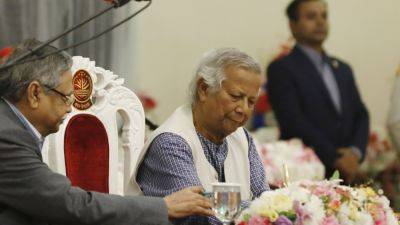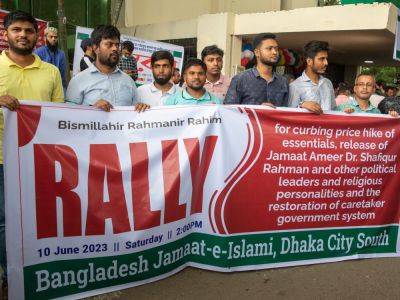Bangladesh’s interim government led by Yunus lifts ban on the Islamist Jamaat-e-Islami party
DHAKA, Bangladesh (AP) — Bangladesh’s interim government led by Nobel laureate Muhammad Yunus on Wednesday lifted a ban on the Islamist Jamaat-e-Islami party that was imposed by the former prime minister who was ousted in nationwide protests against her rule.
Sheikh Hasina, who fled to India on Aug. 5, had banned the party as a “militant and terrorist” organization and blamed its student wing and other associate bodies for inciting chaos over a quota system for government jobs. The weeks of violent protests and Hasina’s crackdown left more than 600 people dead, according to U.N. estimates.
The Ministry of Home Affairs repealed the ban on Wednesday, paving the way for the party to resume its activities. It still needs to register with the Election Commission to contest polls.
There was no immediate reaction from the party leadership. Jamaat-e Islami has been banned from taking part in elections since 2013, after the Election Commission canceled its registration, a decision upheld by the High Court, which ruled that the party’s charter violated the constitution by opposing secularism.
Bangladesh’s Law Affairs Adviser Asif Nazrul said that Hasina’s ban was politically motivated and not based on ideology.
Mirza Fakhrul Islam Alamgir, secretary-general of the Bangladesh Nationalist Party led by former Prime Minister Khaleda Zia, Hasina’s rival, also had blamed Hasina’s government for the ban that he said was meant to divert attention from the violence in which security officials were accused of using excessive force and causing deaths among protesters.
The Yunus-led government has been struggling to restore political stability and order as police forces and other government sectors are demoralized after attacks by







